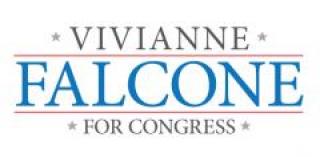Social Security works, as it always has, for over 75 years. It is an insurance program that has provided benefits to millions of American workers since it was created by Democratic President Franklin D. Roosevelt in 1935. Social Security’s opponents called it socialism from the beginning. It is not socialism; it is insurance. People pay into the program their entire working lives to insure they are not poor when they reach their older years and can no longer work. People who are older, people who are disabled, people who have lost a parent need Social Security to stay out of poverty.
Since 1981, more workers have been pushed into defined-contribution retirement plans not a defined benefit plan. The difference between 401(k)s and pensions are that 401(k)s guarantee no benefit. A pension, but instead, have a predetermined contribution to an employee’s retirement account. Sometimes employers will contribute to employee 401(k)s, but it is not required. These 401(k)s have been replacing pensions as the primary form of employee retirement benefits. Workers are expected to make investments within their defined contribution plan. The success of their investments depends on many variables, including how well they understand the risk versus the possible return as explained by the plan’s prospectus and whether the stock market is up or down when it comes time to retire. With 401(k)s, workers bear all the risks, and the results of their investment are at the mercy of the economy, over which they have no control, with its frequent boom and bust cycles.
According to the Economic Policy Institute and The National Academy of Social Insurance, Social Security is the most solvent part of the United States government. The U.S. will not need to dip into the trust fund until 2021. Unlike Social Security, no other program, agency or entitlement is fully funded, let alone in surplus. Social Security ended 2011 with a $2.7 trillion surplus, twice the $1.4 trillion collected in personal and corporate income taxes. It is projected to continue its growth until 2021 when the youngest Baby Boomers turn 67 and qualify for full Social Security benefits.
Social Security plays a very important role for American retirees. Before 1935, poverty was widespread among senior citizens. Franklin Roosevelt and the Democrats sought to remedy that. We must do everything possible to make sure that we are collecting enough from all workers in order to provide retirement security for generations to come. Social Security could increase revenue by covering all state and local employees, who currently are not invested in Social Security or increasing the payroll tax. We could return to the standard set by President Ronald Reagan which stated that 90 percent of wages should be covered by the Social Security tax. Today, the tax applies to only 83 percent of wages. If we went back to the Reagan standard, the Social Security tax would apply to close to $200,000 of wages this year instead of $110,100, the current upper limit. Social Security’s funding shortfalls can easily be met by raising the upper contribution limits beyond this amount.
Attackers of this essential program, who have existed since the beginning, are either clueless about the needs of most Americans or simply cold-hearted enough to not care. As your District’s voice in Congress, I will fight hard to insure that any Social Security shortfalls are addressed without hurting the people who rely on these benefits. Privatization, vouchers and benefit reductions which will remove the ‘Security’ out of Social Security, are unacceptable.
Read the full report here by the Economic Policy Institute and The National Academy of Social Insurance., “A Young Person’s Guide to Social Security”. Download the full report here: http://www.epi.org/files/2012/Young_Persons_Guide_to_Social_Security.pdf

